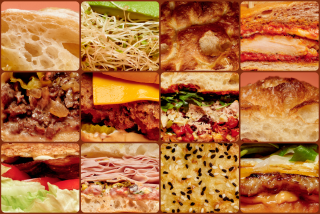Noshing with celebrities
- Share via
No one expects a grab bag of show business anecdotes and cooking recipes to offer much in the way of intellectual stimulation. But in “Dishing: Great Dish -- and Dishes -- From America’s Most Beloved Gossip Columnist,” the redoubtable Liz Smith manages to supply the serious-minded with something worth noshing on.
Make no mistake, you don’t get to be “America’s Most Beloved Gossip Columnist” by “spilling the beans.” Rather, you slow-cook them with care. That’s what Smith learned over the years in a career that took her from running errands for the Cholly Knickerbocker society column to compiling one of the last all-purpose publicity bulletin boards. Smith, who rose to prominence in the wake of Walter Winchell, has witnessed printed gossip’s decline from a time when a divorce raised eyebrows to an era in which self-styled “celebutarts” with no discernible appeal double-dip their Warholian 15 minutes by marketing porn videos of themselves on the Internet. Consequently, the true coin of the gossip realm is less “insider information” than “inner circle access” to supply to a panting public reports on what today’s “celebrities” are “really like,” be they actress Nicole Kidman or reputed mobster Vincent Gotti. And the best field for culling such “reality-based” jottings is culinary.
“All the mechanisms of sharing, enjoying, gossiping, relaxing, and accomplishing something blend into a sensual need when we eat with others,” Smith declares. Elizabeth Taylor and Richard Burton, the last great star couple really worth talking about, provide an example via recollections of the time they were in Paris shooting “Staircase” (him) and “The Only Game in Town” (her). Although the films were set in London and Las Vegas, the City of Light was chosen as the ideal base for the then-inseparable lovebirds. However, such conspicuous proximity only served to encourage culinary competitiveness, as evidenced by Burton’s bragging to Taylor about the cooking skills of “Staircase” costar Rex Harrison: “Tomorrow we are having stuffed steak. Your surroundings here may be grand but the food is very common.” Thus we discover not only what the marriage was like, but also why the Burtons were so ideally cast in “Who’s Afraid of Virginia Woolf.” Smith throws in Taylor’s recipe for “Chipped Beef a la Krupp Diamond” for good measure.
For all her loitering amid the elite, Smith is a good ol’ Texas gal who waxes enthusiastic over far less exalted gourmet treats, invoking “the Elvis that counts -- not the king of rock ‘n’ roll but the master of every fattening thing he desired.” We get the lowdown on such coronary-inducing delights as “Elvis Fried Potato Sandwich,” “Deep-Fried Turkey” and, most imposing of all, “Deep-Fried Snickers Bar.” Reading this is enough to make your cholesterol level spike.
Although Smith acknowledges a culture obsessed with dieting, she does not apologize for such high-calorie tastes. She’s equally honest about her technical limitations. Thus, the Plaza Hotel’s program for teaching well-born children table manners proved ideal for her own understanding of which fork went with which course when eating with the upper crust.
That crust can be malleable, Smith notes in recounting how librettist Burt Shevelove enjoyed the banana splits that Gloria Vanderbilt so loved to serve. Such louche tastes notwithstanding, a sense of culinary quasi-democracy came into vogue after World War II, when “eating out” became fashionable among the swell and Smith discovered the joys of the non-deep-fried at Le Pavilion in Manhattan.
But “class” is always adaptable, as Smith learned in her Knickerbocker days, when she was called on to aid “the most fearsome of all the WASPy doyennes,” Mrs. Permelia Reed. For such efforts, Reed insisted that Smith call her by her first name. “Mrs. Reed’s treatment of me was merely noblesse oblige,” Smith says matter-of-factly. “After all, I hadn’t made any waves. I had expressed pleasure and gratification for the lovely high teas she’d laid out for me. I’d been respectful, shy, and I’d done good work with (for) her. And then I never tried to go to [Reed’s ultra-privileged Florida stomping ground] Hobe Sound. That would probably have been a different matter.”
As Smith well knows, no one in that social set wants waves at afternoon tea. *


